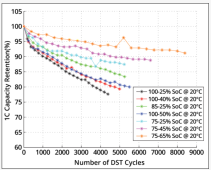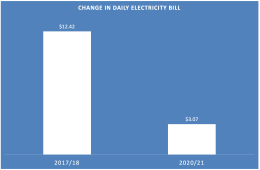I have been asked this question way too many times: Does solar power really pay off? Especially my neighbors, they still ask if my investment and work on my solar power system pays off.
The simple answer is a resounding YES!
The answer, as with many such things, is always going to be:
It depends.
Every individual circumstance is different:
- the availability of grid power supply varies greatly
- grid power reliability is completely different in different locations
- local tariff regimes vary enormously
- grid export regulations vary a lot
- suitability of people's homes vary considerably with respect to the technology that is required to make it effective, if it can be effective at all
- not all homes have rooftops or ground suitable for solar PV
- regulatory requirements vary a lot from place to place, meaning approvals and who is permitted to perform such work varies
- people have wildly varying climates and energy use and energy use patterns
- subsidy and other incentive programs vary
- people may not expect to remain in their home for very long
- costs vary a lot from place to place, both equipment and labour
Unless and until you consider all of the above and then some, then the answer the to question will always be "it depends".
We would be pretty typical of the Australian scenario, although there are of course differences here too.
In general in Australia, provided you have a rooftop suitable for solar PV and expect to remain in your current home for more than five years, then a professionally installed grid-tied solar PV is almost definitely worth it. That's because grid tied solar PV is very cheap here (compared with the US), the tariffs make it worth while and almost universally we can export excess production for a credit. We are close to 30% of all homes having rooftop grid-tied solar PV so that should give some idea of what the general public think.
Home batteries however, from a financial benefit sense, are NOT worth it here. Not even close. They need to be one-third the current price before they start to just make sense. While installations are growing it's a tiny fraction of early adopters. Most have realised they make little financial sense.
Going off-grid here if you already have grid connection would, in most cases, be financially insane. That's really only for people deciding between paying to have a new grid connection installed or installing an off-grid system.
Outage backup is a different value case and that value depends a LOT on where you are, the nature and frequency of such outages, and what alternative energy sources you have at your disposal should they occur. In most cases here an expensive battery is not warranted for outage backup. In the cities outages are rare. I had one two hour outage in 20 years when in the city. In rural areas it is different, outages are more common as the poles and wires are more at threat and there is less redundancy. So having outage coverage is more common but expensive home battery systems are still not a common answer to that, people in rural areas just use generators. At 1/20th the cost of a home battery it's a no brainer. Some are of course prepared to pay a premium though.
Many place value on DIY projects (I did), although DIY is not common here and for most homes is not a viable option due to regulatory requirements. Anything grid-tied MUST be done by licensed electrician and have approvals from the local power distribution authority. DIY is typically more for smaller off-grid projects. Anything of substance will still need to be done by a licensed electrician.
There were some comments about whether solar PV adds value to a home. The experience here is mixed. It might but rarely is it a big selling point for realtors. For most buyers it's just not a factor, and because solar PV is so common a lot of the time a solar PV system actually devalues a home - precisely because they are old and probably need to be repaired, or removed so something better can be installed instead. Or it's an ugly installation. My brother recently moved into a place he bought and I visited the other day for the first time. His system is small, fairly old and covered with lichen. The wiring is pretty ordinary and there are other issues. It'll requires quite a bit of expense to fix or replace. The former owner was an electrician yet the wiring around the property is ridiculously awful.





